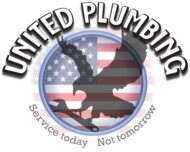When you are buying or building a home, the type of wastewater system that your home is connected to can have a big impact on your plumbing. There are two main types of wastewater systems: septic and sewer. While both systems serve the crucial function of disposing wastewater, the way they operate and the potential plumbing issues they can present vary widely.
Let's take a closer look at how septic tanks and sewer systems work and how they can impact your plumbing in Springfield Missouri.
Septic Tanks
Septic tanks are typically found in more rural homes where a connection to the local sewer system is not an option. In a septic system, wastewater travels through your pipes and collects in a septic tank, which is typically located somewhere on your property.
The liquid waste, known as effluent, is treated by bacteria before being emptied into a drainfield and then deposited into the soil. Bacteria also eats away at the solid matter in your tank. It’s recommended that you have your septic tank pumped to remove excess sludge and scum every few years.
There’s a certain level of independence in having a septic system, as you don’t have to rely on your city’s sewer system to remove your wastewater. You also don't have to worry about any sewer issues caused by someone else impacting your property. And not being connected to the municipal sewer system means that homeowners won't be hit with monthly or quarterly sewage charges.
But that also generally means that you need to be a bit more careful about what you put down your drains. Maintaining your septic system is your responsibility, so keeping tabs on your septic system is an additional aspect of plumbing you have to deal with on your own.
Septic systems require regular maintenance to ensure their longevity and efficiency. This often includes periodic pumping of the tank to remove solid waste that hasn't broken down. Ignoring this can lead to the septic system backing up or failing altogether.
Another potential issue with septic systems is the chance of leach field failure. If the drainage field becomes overloaded or blocked, wastewater can't be properly treated and may rise to the surface or back up into the home. This can result in unpleasant odors, a soggy yard, or even groundwater contamination.
Sewer Systems
Buildings within the city limits are typically required to connect to the city’s sewer systems, which are a network of pipes that transfer waste from homes and businesses to a water treatment plant.
While homes and businesses are required to pay monthly for this service, the tradeoff is not having to worry about maintaining the entire system yourself.
A connection to the municipal sewer system offers homeowners a more hands-off approach to wastewater disposal. Sewer systems are managed by local municipalities and transport wastewater from households to centralized treatment facilities.
Municipal sewer systems provide reliability and efficiency. The chances of backups or system failures are generally lower compared to individual septic systems, especially since the responsibility of system maintenance falls upon the municipality rather than the homeowner. This means fewer worries about regular pumping or leach field health.
But being connected to a sewer system does not make one immune to plumbing problems. Blockages can still occur within the home's internal plumbing due to inappropriate items being flushed down drains, such as wipes, fats, or oils. Additionally, there's always the risk of the public sewer system having issues that could potentially impact individual households.
Keep in mind that the sewer line leading from your home to the public sewer system is your responsibility, so any issues with that need to be either handled personally or by calling on a plumbing company in Springfield, Missouri.
Whether you're connected to a septic tank or a sewer system, your home's plumbing will be impacted by these wastewater disposal methods. A septic system provides autonomy, but requires diligent maintenance. A sewer connection offers convenience and reliability, but at the cost of periodic fees and a reliance on public infrastructure.
Homeowners need to understand the unique challenges and responsibilities associated with their wastewater system, ensuring a smooth flow of water in and out of their homes. If in doubt, always consult with a professional plumber who can guide you through the best solution to any plumbing issues.
At United Plumbing, we are available 24 hours a day, 365 days a year to help with any type of plumbing problems whether you're connected to a septic tank or a sewer system.

